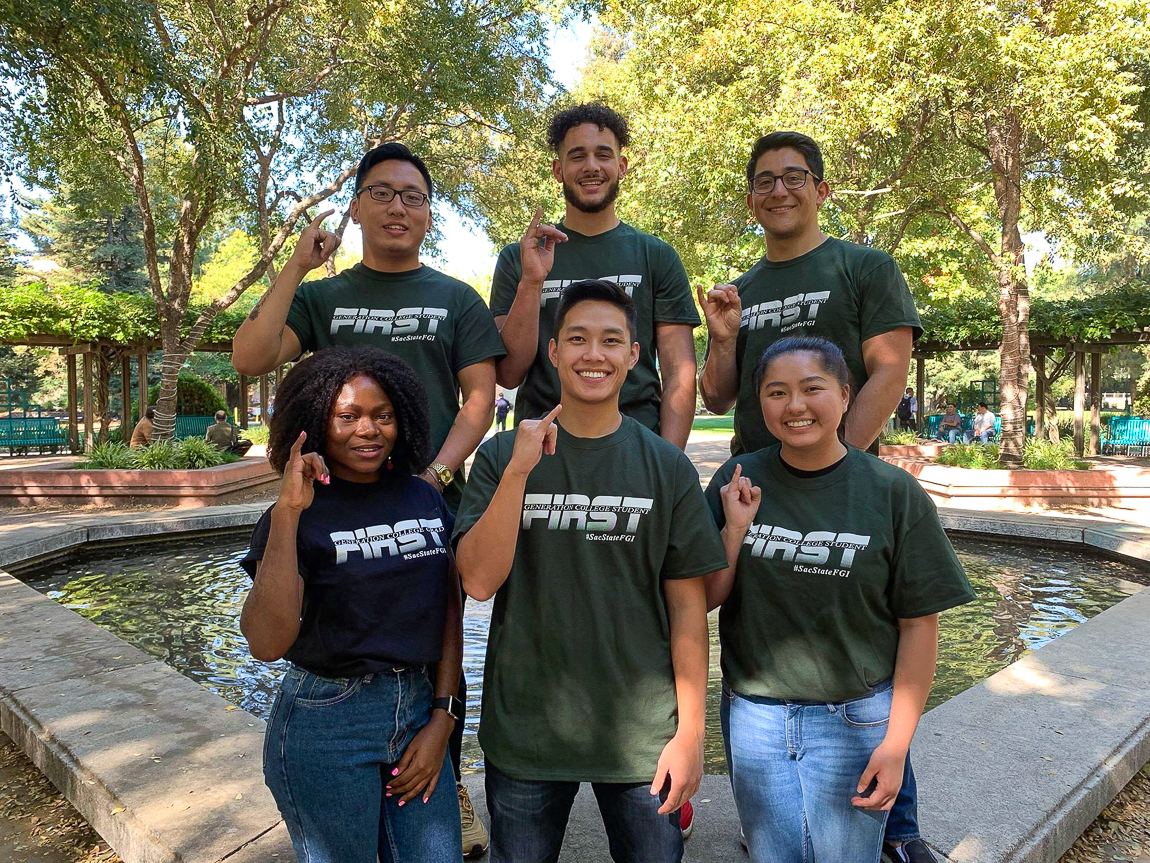
By Cynthia Hubert
Sacramento State has joined colleges and universities across the country in a celebration of first-generation students’ success and perseverance.
The annual First-Generation College Celebration, held Nov. 2-6, commemorated the signing of the federal Higher Education Act of 1965, which created grants and loan programs designed to help underserved and low-income students pay for college.
“For so many reasons, it is important to promote and engage first-gen students,” who are role models to their families, friends and communities, said Chao Vang of Sac State’s Student Academic Success and Educational Equity Programs. The week of celebration demonstrated an “affirmation and commitment to the success” of these students, many of whom face significant financial and cultural obstacles in their pursuit of higher education, Vang said.
SASEEP throughout the week sponsored a series of Zoom events featuring students, faculty and staff offering first-generation scholars information, resources and advice to help overcome challenges in college and life. An awards presentation Nov. 5 honored students for their academic achievement, staff and faculty members for their advocacy, and Sac State community partners for supporting the University’s efforts.
“It’s not easy to be a first-generation student,” and the COVID-19 pandemic has made the process even more daunting, said Ed Mills, Sac State’s vice president for Student Affairs, prior to Thursday’s awards presentation. “It can be confusing, bewildering, stressful.”
But, he told students, “I see such incredible vigilance and hope within you. Together, we can get through this.”
Amy Kautzman, dean and director of the University Library, was one of the week’s featured speakers. She urged first-generation students to study hard, seek out mentors, and “be hungry” for success.
“You wouldn’t be here if you weren’t hungry,” said Kautzman, who like Mills identifies as “first gen.”
“Be hungrier. Open yourself up” to various opportunities, even if it’s uncomfortable, she said. “Build a strong community around you, and put your best work forward.”
About one-third of Sac State students identify as first-generation, meaning neither of their parents graduated college.
Although they have the necessary academic chops and drive, some feel isolated and overwhelmed on college campuses, in part because they are without family role models to help them pursue higher education, said Vang. Some feel pressure from relatives who may rely on them to act as translators and otherwise help their families.
Sac State has demonstrated a substantial and growing commitment to first-generation students.
The University recently announced the establishment of a Center for First-Generation Student Initiatives, which brings together faculty, staff, students and alumni to support scholars through various programs, workshops and other resources.
Sac State has been honored as a “First-gen Forward” institution, a national recognition program for colleges committed to first-generation students. It has a First Generation Institute, a student-centered program designed to promote retention and graduation rates. It also has created a chapter of Tri-Alpha, a national honor society that honors the academic achievements of first-generation students.
Through such programs and other efforts, Sac State is working to eliminate “opportunity gaps” that result in higher dropout rates and lower graduation rates for first-generation students.
Pamela Russell, a fourth-year Psychology student, spoke during a Zoom session about being the first in her immediate family to attend college. She “genuinely enjoyed learning,” she said, but had no relatives or friends to help her navigate the process of enrolling and succeeding in higher education.
At first, “it was hard to manage school, work and home life,” she said. Once she landed two jobs on campus, Sac State “became my home,” Russell said.
Russell has persevered thanks to resources including the Educational Opportunity Program, the Summer Bridge Academy, and the MLK Center, as well as the guidance of faculty members, she said.
Marcellene Watson-Derbigny, Sac State’s associate vice president for Student Retention and Academic Success, told students who were honored for their academic achievements to “go out and be the first to do something great.”
“You have it in you,” she said. “You are lifting up your families and communities, one degree at a time.”